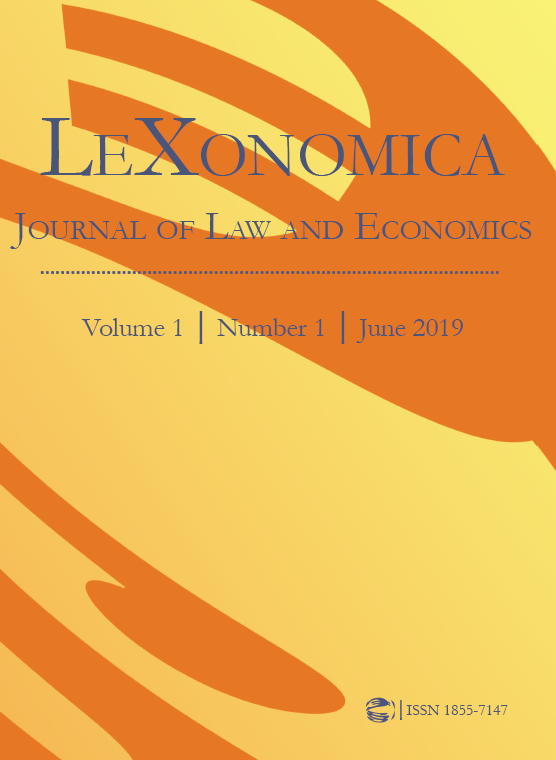If at First You do Not Succeed: An Overview of Remedies Available in the United States Courts of Appeals
DOI:
https://doi.org/10.18690/lexonomica.14.1.97-126.2022Keywords:
appeals, final judgment rule, collateral orders doctrine, interlocutory appeals, mandamus, appeal administrative orders, class actionsAbstract
In the United States federal court system, from a procedural standpoint, it has been the historic policy that appeals to the Courts of Appeal lie only from final decisions by the district courts. This policy, dubbed the final judgment rule, is designed to prevent a piecemeal approach to appellate practice, and to enhance efficiency and fairness. Applied overly strictly, the rule can often lead to unfair results, and even irreparable harm. This article catalogues the primary exceptions to the final judgment rule, and discusses those instances when interlocutory appeals may be taken short of district court rulings disposing of all issues as to all parties, that is, final judgments.
Povzetek. V zveznem sodnem sistemu Združenih držav Amerike je bilo s procesnega vidika zgodovinsko sprejeto, da se pritožba na pritožbeno sodišče lahko vloži le zoper pravnomočne odločbe okrožnih sodišč. Namen te politike, imenovane pravilo pravnomočne sodbe, je preprečiti razdrobljen pristop k pritožbeni praksi ter povečati učinkovitost in pravičnost. Če se to pravilo uporablja pretirano strogo, lahko pogosto povzroči nepravične rezultate in celo nepopravljivo škodo. V tem članku so navedene glavne izjeme od pravila pravnomočne sodbe in obravnavani primeri, v katerih je mogoče vložiti vmesne pritožbe, če okrožno sodišče ni izdalo sodbe, s katero je odločilo o vseh vprašanjih za vse stranke, tj. pravnomočne sodbe.
Downloads
References
Dellapenna, J. W. and Gupta, J. (2009) The Evolution of the Law and Politics of Water (Springer: 2009th edition).
Discretionary Appeals of District Court Interlocutory Orders: A Guided Tour Through Section 1292(b) of the Judicial Code (1959) The Yale Law Journal, 69, p. 334
Federal Judicial Caseload Statistics 2020, retrieved from: https://www.uscourts.gov/statistics-reports/federal-judicial-caseload-statistics-2020 [accessed December 12, 2020].
Gould, Kenneth S. (1999) Federal Rule of Civil Procedure 23(f): Interlocutory Appeals of Class Action Certification Decisions, The Journal of Appellate Practice and Process, 1(2), p. 310-311.
Hearing on H.R. 6238, before Subcomm. No. 3 of the H. Comm. On the Judiciary, 85th Cong., 2d Sess. 2 (1958), reprinted in 3 U.S.C.C.A.N. 5256 (1958).
Lee D. A., Davis T. E. (2016) “Nothing Less Than Indispensable”: The Expansion of Federal Magistrate Judge Utilization in the Past Quarter Century, 16 NEV.L. J.
McCabe, P. G. (2014) A Guide to the Federal Magistrate System: A White Paper Prepared at the Request of the Federal Bar Association, retrieved from: www.fed.bar.org/wp-content/uploads/2019/10/FBA-White-Paper-2016-pdf-2.
Supreme Court of The United States, available at: supremecourt.gov [accessed December 12, 2020].
United States Courts, Supreme Court Procedures, available at: uscourts.gov [accessed December 12, 2020].
Weigand, T. (2014) Discretionary Interlocutory Appeals Under 28 U.S.C. §1292(b): A First Circuit Survey and Review, Roger Williams University Law Review, 1(19).
Wright, C. A and Kane, M.K. (2017) Law of Federal Courts, 8th Edition (St. Paul, Minnesota: West Academic Publishing).
Wright, C.A. et al. (1991) Federal Practice and Procedure, 2d. ed., §3929 (St. Paul, Minnesota.: West Academic Publishing).
Downloads
Published
Issue
Section
License
© Univerza v Mariboru, Pravna fakulteta, Univerzitetna založba
Prosti pristop
